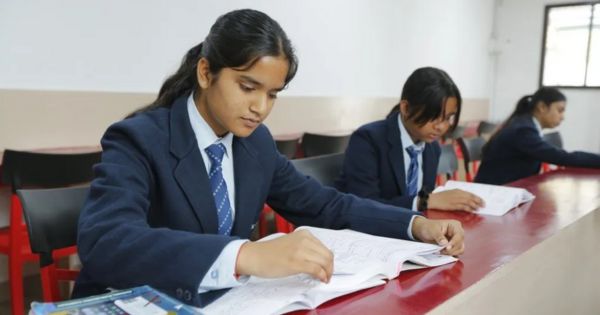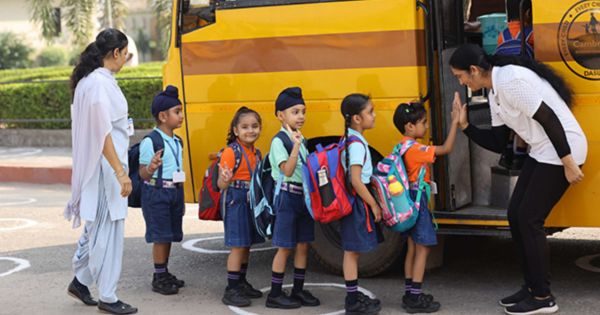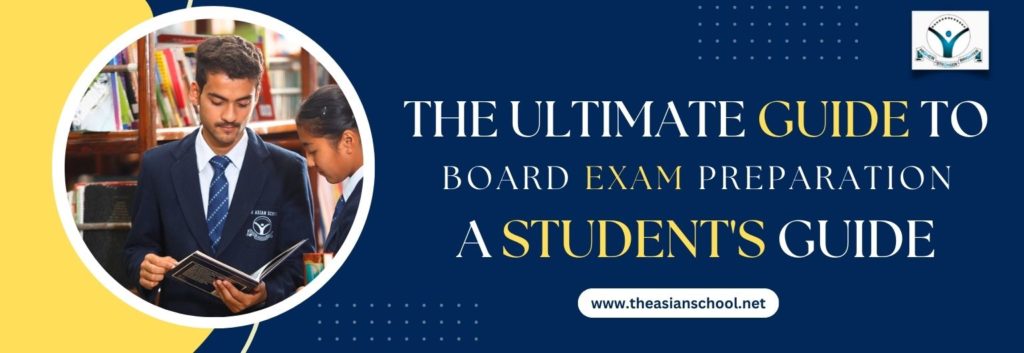Making the decision to send your child to boarding school is a big one that requires careful thought, investigation, and prompt action. Many parents are looking into boarding schools in India that provide world-class infrastructure, a structured environment, and holistic development as the demand for high-quality residential education rises. Knowing how to apply for boarding schools in India for the 2026–2027 academic year is essential, regardless of whether you’re looking for a renowned coed residential school in India or other specialized schools there.
This thorough guide will ensure a seamless and timely admission by guiding you through every step, from investigating your options to submitting your final documents.
- Why Choose Boarding Schools in India?
Why Choose Boarding Schools in India?
It’s useful to comprehend why boarding education has grown in popularity before delving into How to Apply for Boarding Schools –
1. Holistic Development – In addition to academics, Indian boarding schools emphasize extracurricular activities, sports, the arts, and values-based instruction.
2. Global Exposure – International exchange programs are held on the campuses of several prestigious co-ed residential school in India, allowing students to cultivate a global perspective at a young age.
3. Structured Environment – Boarding life cultivates self-discipline, independence, and time management—skills that endure a lifetime—through set study hours and weekend activities.
4. Strong Alumni Network – Reputable Indian school graduates frequently take advantage of strong alumni associations, opportunities for mentorship, and enduring relationships.
In light of these benefits, let’s examine the detailed Admission procedure to guarantee your child gets a spot at the boarding school of their choice for the 2026–2027 academic year.
Research and Shortlisting Boarding Schools

1. Identify Your Priorities
Start by enumerating the most important factors: academic program (CBSE, ICSE, IB, or IGCSE); coeducational or single-gender environment; location (plains like Punjab or mountainous areas like Dehradun); sports facilities; emphasis on the arts; and cost. Indicate which co-ed residential school in India provides balanced learning environments for both boys and girls if that is your specific search.
2. Utilize Official Websites and Brochures
Go to the official websites of the Boarding Schools in India that made the shortlist.
Be mindful of –
- Criteria for admission
- Timelines for applications
- Scholarship opportunities and fee schedules
- Profiles of the faculty
- Campus facilities
To compare school calendar and extracurricular offerings side by side, download digital brochures.
3. Attend Virtual Tours and Open Houses
Numerous prestigious schools in India offer interactive Q&A sessions, webinars, and virtual tours. You can get a better understanding of campus culture, student-teacher ratios, and safety protocols by taking part in these sessions. Note the application deadlines that are discussed at these gatherings.
Understanding Eligibility and Entry Requirements of Boarding Schools

1. Age and Grade Criteria
The majority of Boarding Schools in India have explicit age requirements for every grade level.
For instance –
- Students in grades 10–11 are admitted to grade VI.
- Admission to Grade IX – 13–14-year-olds
- Pre-Primary – children ages 4–5 (if early admission is available at the school)
To guarantee compliance, always double-check the dates of birth on birth certificates and school recommendations.
2. Entrance Examinations
A lot of boarding schools administer entrance exams in subjects like general knowledge, math, and English.
Additionally, some institutions might need –
- Personal Interviews – Conducted in person or through video conference to evaluate the child’s confidence, personality, and communication abilities.
- Psychometric Tests – Psychometric tests are used to assess a person’s aptitude, creativity, and problem-solving skills.
- Group Activities – Particularly in coeducational residential schools in India, where social skills and teamwork are crucial.
Make sure your child understands the format of the exam by having them practice the sample papers that are available on the school’s website.
Application Procedure

1. Filling Out the Application Form
The majority of schools provide both offline and online application options. Remember the following advice when filling out forms –
- Accuracy – Verify contact information, academic background, and personal details twice.
- Photograph Requirements – Take current, passport-sized pictures in accordance with the school’s policies.
- Application Fee – To prevent last-minute issues, pay as soon as possible using the designated method, such as demand drafts or online payment gateways.
2. Submitting Supporting Documents
The following are typical documents that schools in India require –
- Certificate of birth (authenticated copy)
- Academic transcripts and report cards from the previous two years
- Certificate of transfer (if applicable)
- Photos the size of a passport
- Certificate of medical fitness (issued within the last six months)
Since some boarding schools might need in-person verification before confirming admission, have both the original and photocopies on hand.
3. Scholarships and Financial Aid
A large number of Boarding Schools in India provide need-based financial aid, sibling discounts, and merit-based scholarships. Verify the requirements for eligibility, which frequently include completing an additional scholarship test or interview. Make sure to submit the scholarship application with your main application if you qualify.
Entrance Exams, Interviews, and Assessments

1. Preparing for Entrance Exams
- Curriculum Alignment – Verify that your child’s study aids correspond with the syllabus that the school has established.
- Mock Tests – Develop your confidence and time management skills by practicing with past years’ question papers.
- Tutoring – Take into account signing up for short-term coaching facilities that focus on boarding school entrance preparation, particularly for competitive exams for co-ed residential school in India.
2. Attending Interviews and Group Discussions
- Dress Code – Wear clean, semi-formal clothing.
- Communication Skills – Help your child get comfortable introducing themselves, talking about their interests in school, and describing their hobbies.
- Group Dynamics – Cooperation is emphasized in many Boarding Schools in India. During group activities, make sure your child feels at ease expressing their opinions in a polite manner.
Result Announcements and Seat Confirmation

1. Checking Admission Status
Schools will publish a list of the shortlisted applicants following exams and interviews. Watch for official notifications through the school portal, SMS, or email.
2. Accepting an Offer
As soon as your child’s name appears on the chosen list, take the following actions –
- Pay Seat Confirmation Fees – In order to guarantee admission, the majority of Indian schools demand a non-refundable deposit within a predetermined window of time, typically two weeks.
- Send in Extra Documents – Some schools might ask for signed parental agreements, proof of income (for scholarship renewal), or current medical records.
- Select Meal Plans and Dormitory – In India’s co educational residential schools, the dormitories are frequently divided by gender; find out if your child has vegetarian, non-vegetarian, or special diet preferences.
Pre-Boarding Preparations

1. Attending Pre-Boarding Orientation
Boarding Schools in India usually hold orientation camps after admission is confirmed –
- Campus Familiarization – Campus familiarization includes escorted tours of the residence halls, classrooms, libraries, and athletic facilities.
- Hostel Rules & Regulations – An outline of dress codes, phone usage, curfew times, and disciplinary procedures.
- Health & Safety Briefings – Details about hospitals, emergency contacts, and regular physicals.
2. Packing Essentials
Make a thorough checklist that consists
- Uniforms – Wear shirts, pants or skirts, blazers, ties, and sports kits in accordance with school regulations.
- Bedding – blankets, bed linens, pillows, and, if necessary, mosquito nets.
- Stationery & Study Materials – The school recommends reference books, art supplies, calculators, and notebooks.
- Personal Care Items – Personal care supplies include a first aid kit, towels, toiletries, and any prescription drugs.
The Transitional Phase

1. Initial Weeks on Campus
In India, the first few weeks of a co-ed residential school in India can be quite demanding. To aid in your child’s adjustment –
- Frequent Check-Ins – To combat homesickness and promote candid communication, continue holding weekly video calls or emails.
- Peer Buddy System – In order to show newcomers around and introduce them to networks of friendship, the majority of boarding schools in India designate senior students as buddies.
- Counseling Support – Promote the use of on-campus counselors who are experts at making the move to living on campus easier.
2. Academic and Extracurricular Balance
- Study Plans – Together with your child, create a practical study schedule that strikes a balance between schoolwork, extracurricular activities, sports, and leisure.
- Encouragement – To promote social integration and skill development, encourage them to join clubs based on their interests, such as debate, coding, theater, or environmental conservation.
Conclusion
It takes careful preparation, on-time submissions, and continuous assistance to navigate how to apply for boarding schools in India for the 2026–2027 academic year. Every stage is vital, from identifying the top boarding schools in India and comprehending eligibility to getting ready for entrance exams and adjusting to campus life.
Following this structured roadmap will help secure admission and ensure a smooth transition for families looking for a nurturing environment, whether at a top-tier coed residential school in India or any of the other top schools in India. Among them, The Asian School, one of the best boarding school in Dehradun, India, stands out for its academic excellence and holistic development. With commitment, planning, and open communication, your child’s time in boarding school should be a rewarding experience that lays the groundwork for both academic and personal success.
Also Read: How Boarding Schools in India Help Students Adjust to Campus Life














